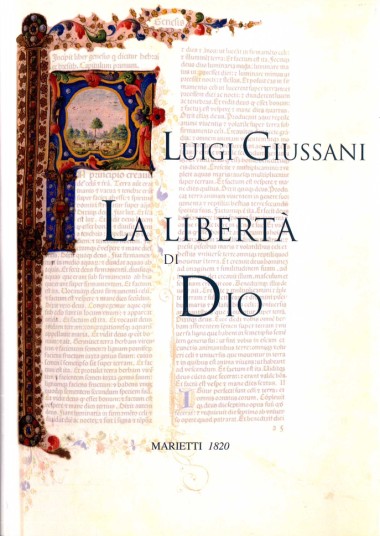The Author starts from the assumption that in the freedom of God lies the freedom of man.
The premise from which the free conscience of man derives is the fact that there is something in him that does not depend on reality’s mechanical processes but only on God. He can only be free by virtue of this relationship, through which he is always able to choose the transcendent over any earthly factor. Thus, the freedom of a human person depends on God, that is, on something that transcends reality. In this sense, the word “freedom” coincides with the word “gratuitousness” because man is free thanks to the fact that he does not make himself by himself. God creates freely, that is gratuitously, and compels creatures to choose between their accepting the fact of being created and their rebellion against this dependence. Religiosity is accepting reality as God has made it, and this awareness frees human beings from all fear because their attitude is constantly awaiting what God has prepared for them.
Two are the signs of the freedom of God in man—the instinct of self-preservation, and self-love. As both expressions of attachment to life, they show that our existence structurally contains a promise of positivity. Despite these signs, however, human beings are afraid. Therefore, God becomes involved with them; He sustains them with His companionship by incarnating Himself and keeping His covenant through the encounter with other people that have been changed by His presence. A sign of this change is the unity of the Church generated by the encounter of God’s proposal throughout history.
In order to come to man, God sets a condition—pain. As a matter of fact, it calls the freedom of man to adhere to God. The pain we accept in the name of the Mystery, as an event for our journey, turns into joy and gladness. In the face of the most tragic pain, the pain of sin, the freedom of God overcomes itself. In fact, from gratuitousness of creation it becomes mercy—not only does God mould his creatures but He recreates them through His forgiveness.
By accepting the gratuitousness of the freedom of God within reality, human beings can live in the totality of their existence, that is they cannot deny or reduce anything. But to accept God’s plan, one must be humble. Humility lies in the sense of our own nothingness combined with recognizing the promise of good that is inherent in creatures. Only humility allows us to maintain an attitude of total openness to being and of true acceptance of our brothers and sisters. In his brother’s limitations man can find the familiarity of the freedom of God and encounters the companionship that enables him to be more and more himself in what happens to him.






